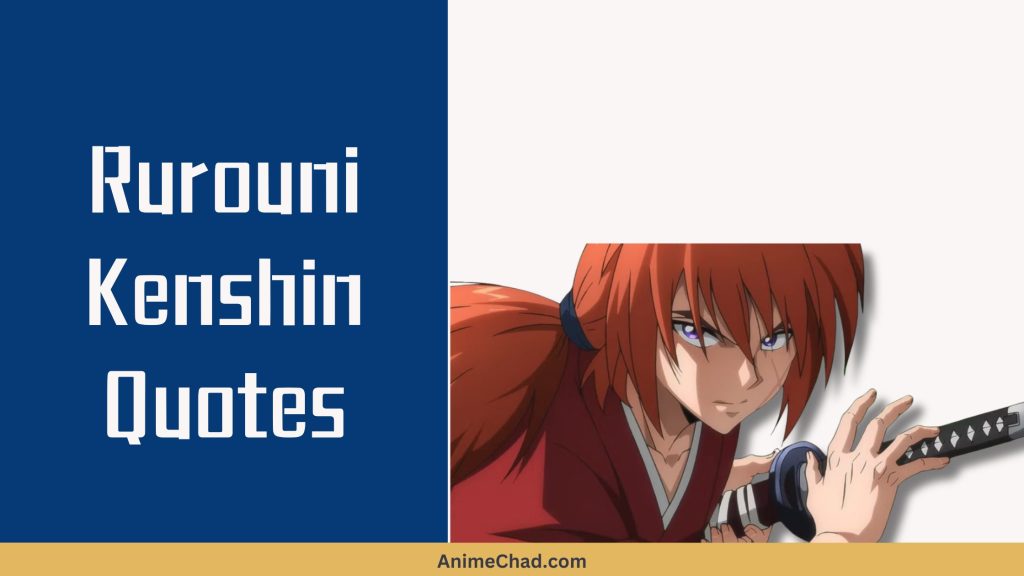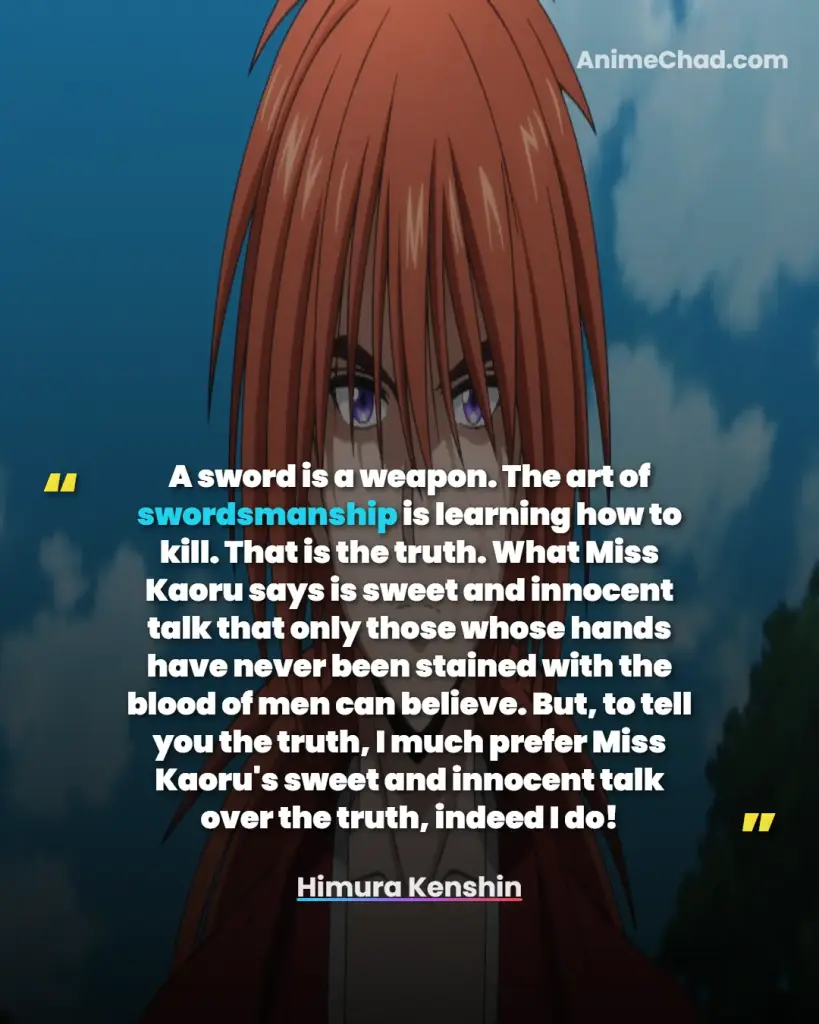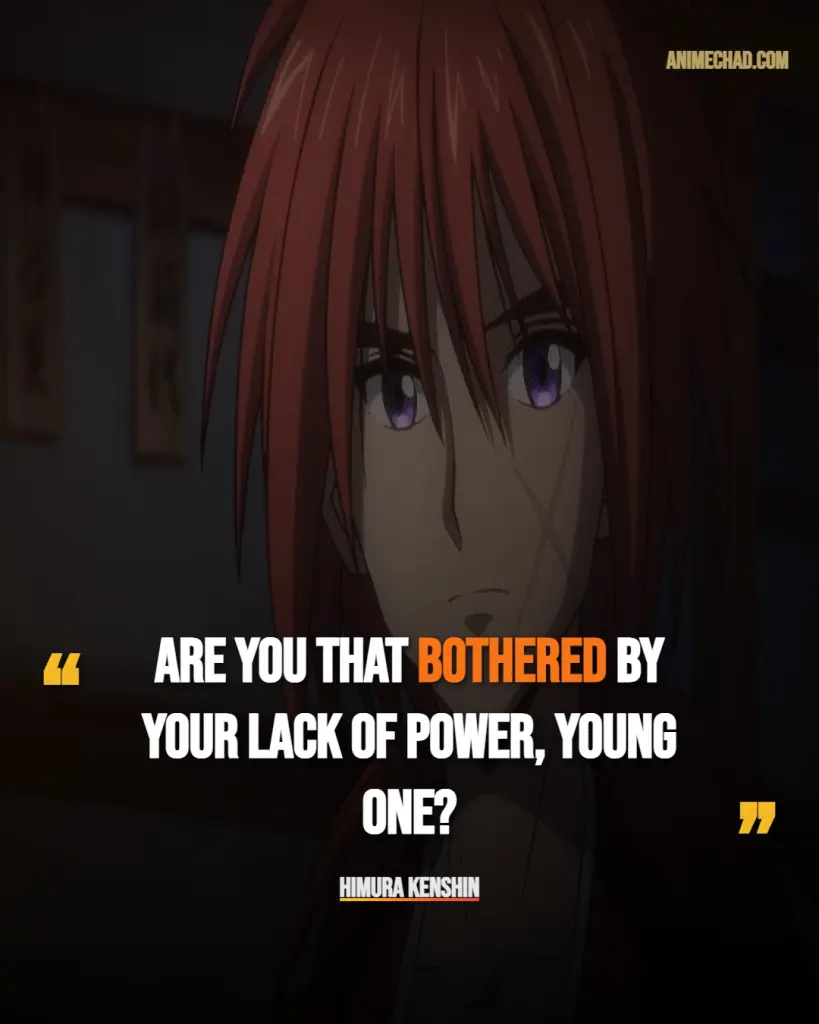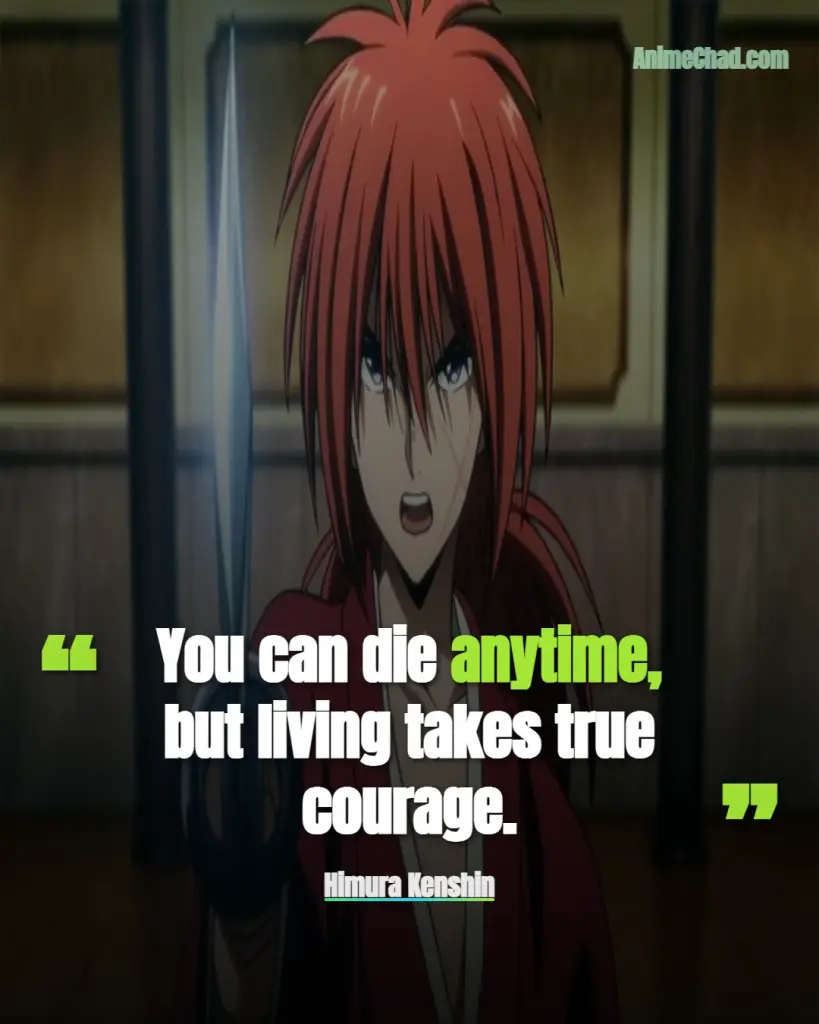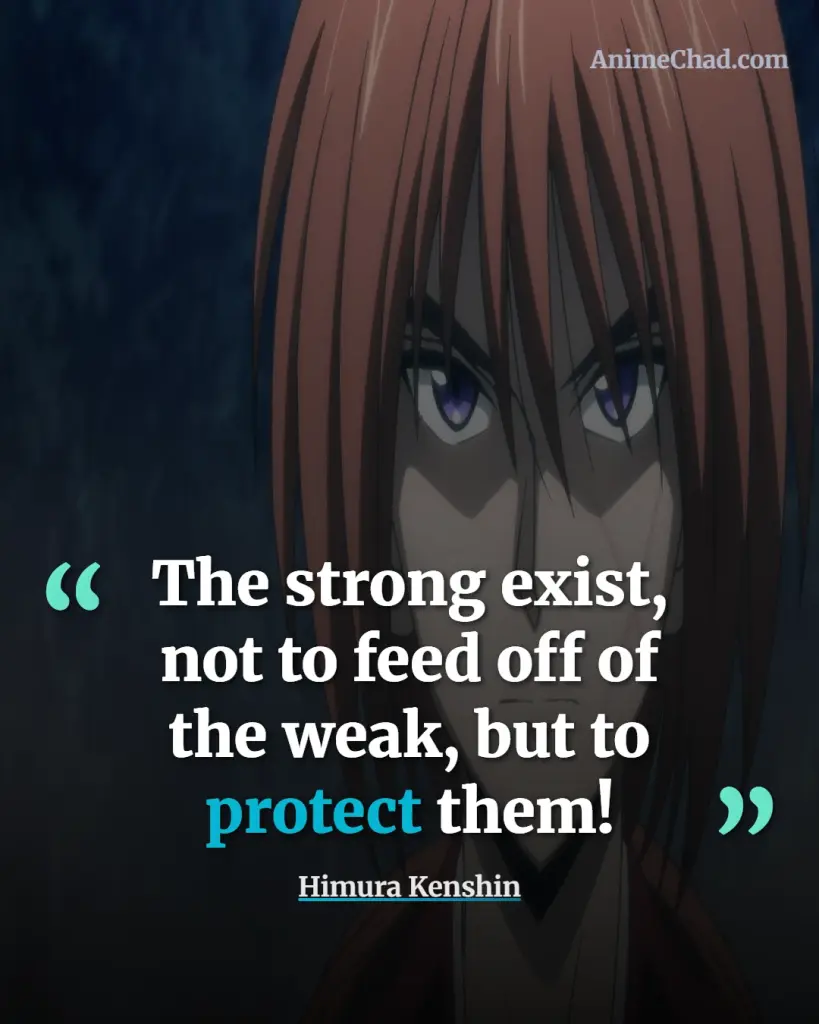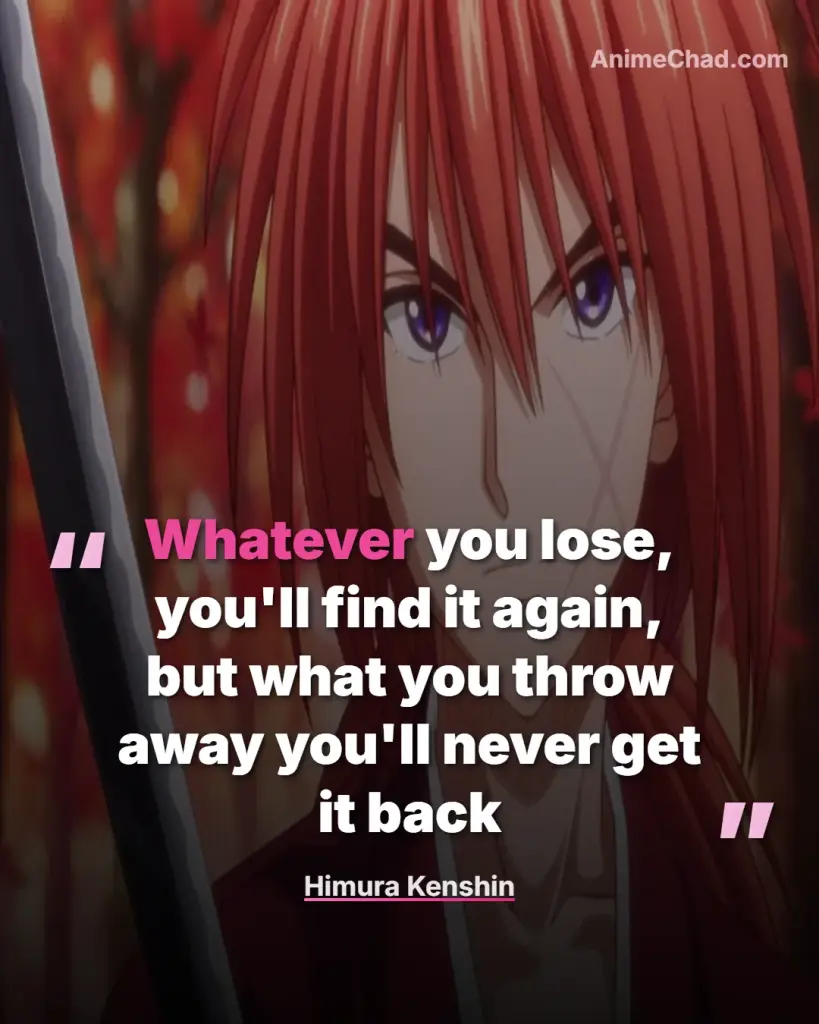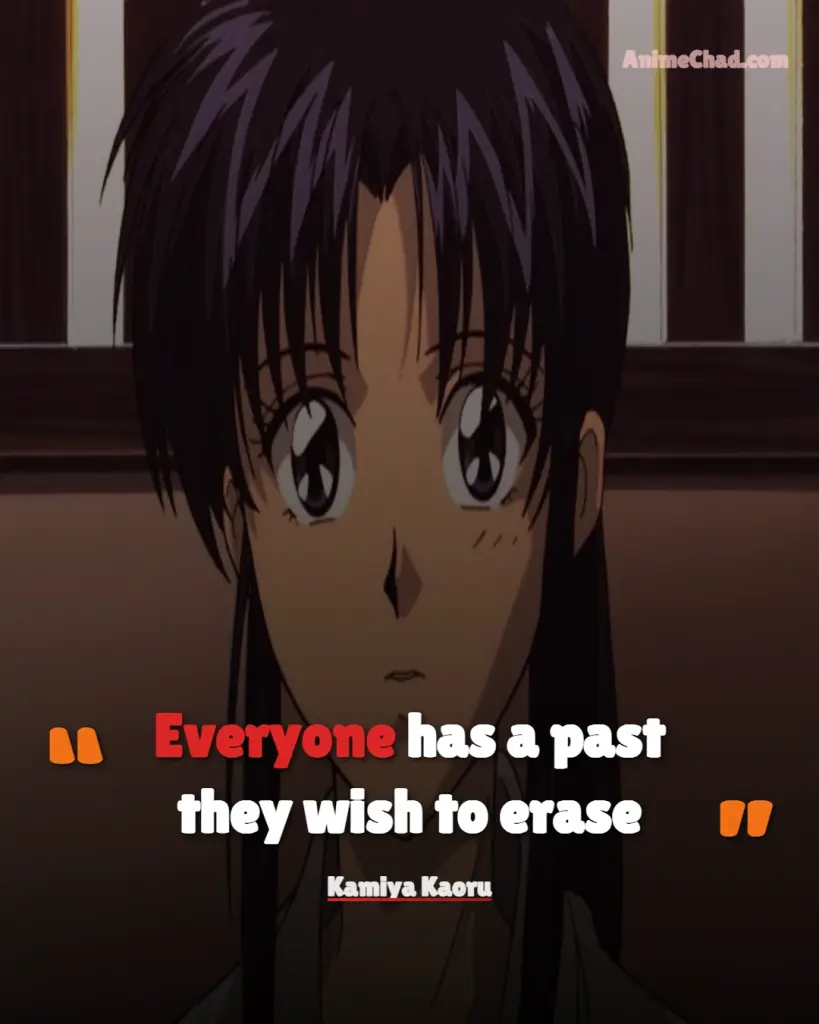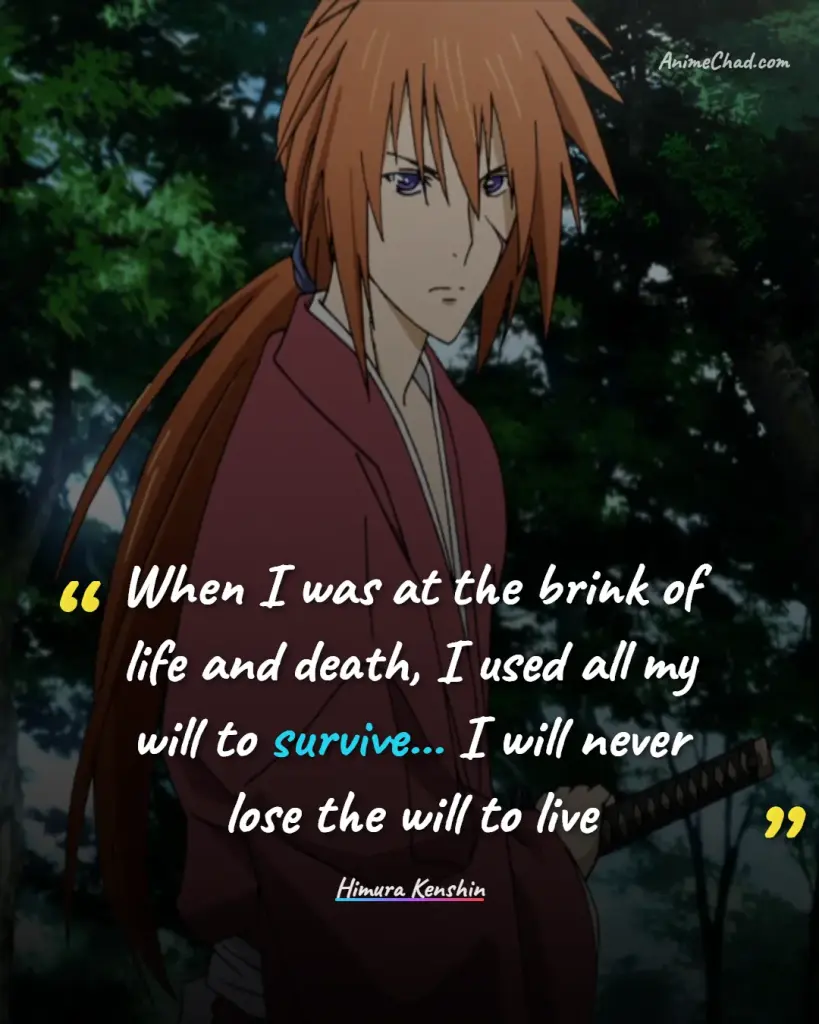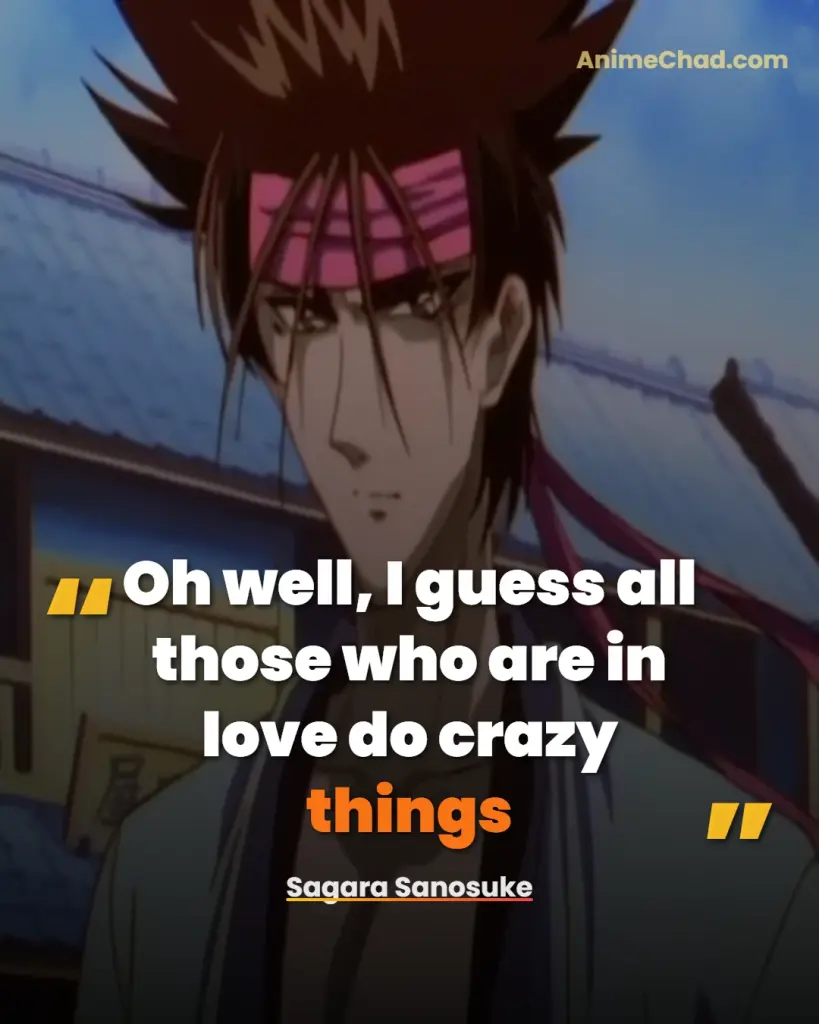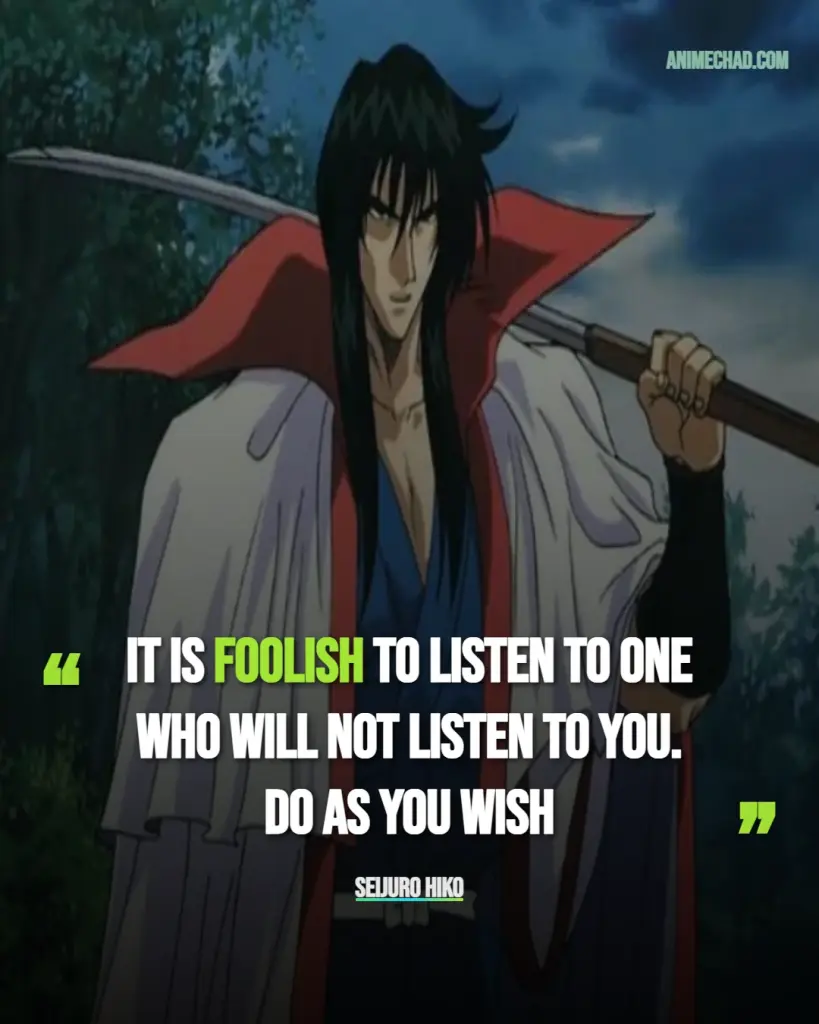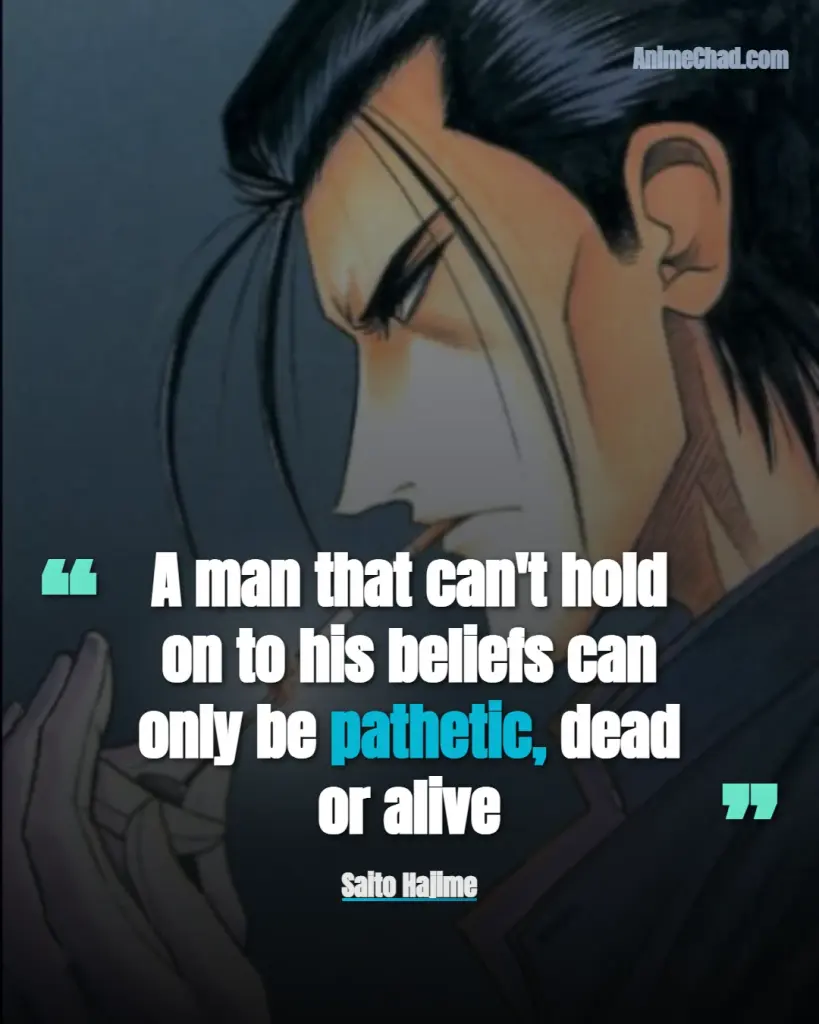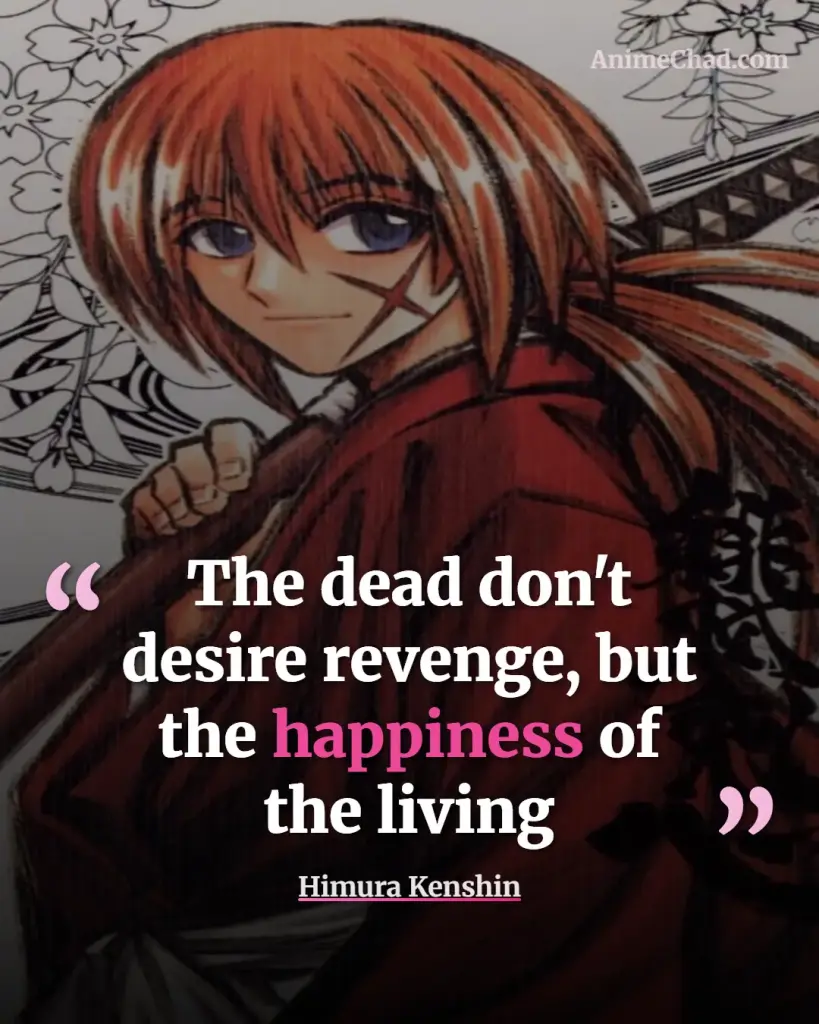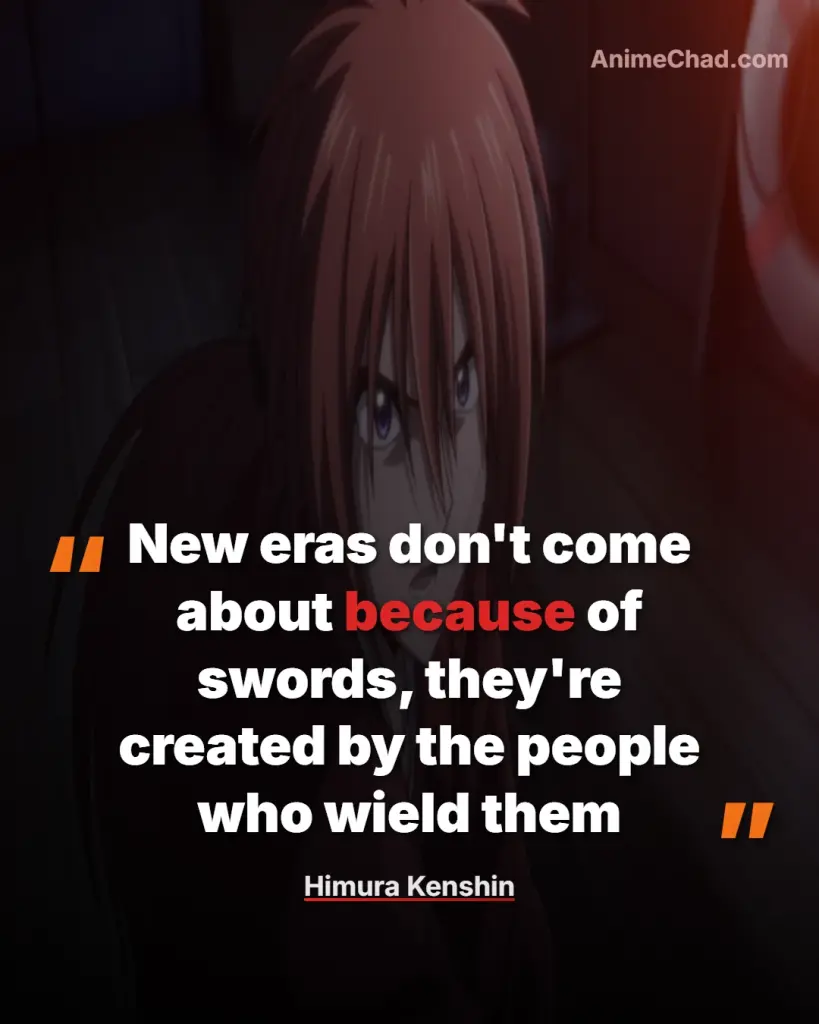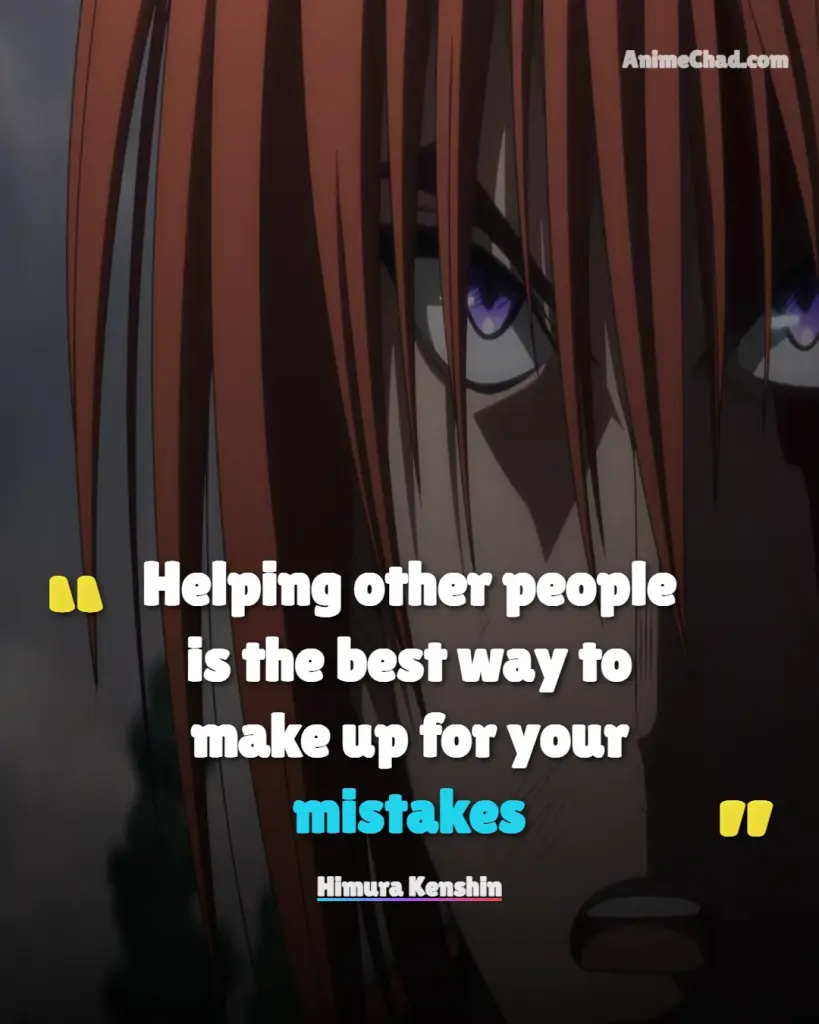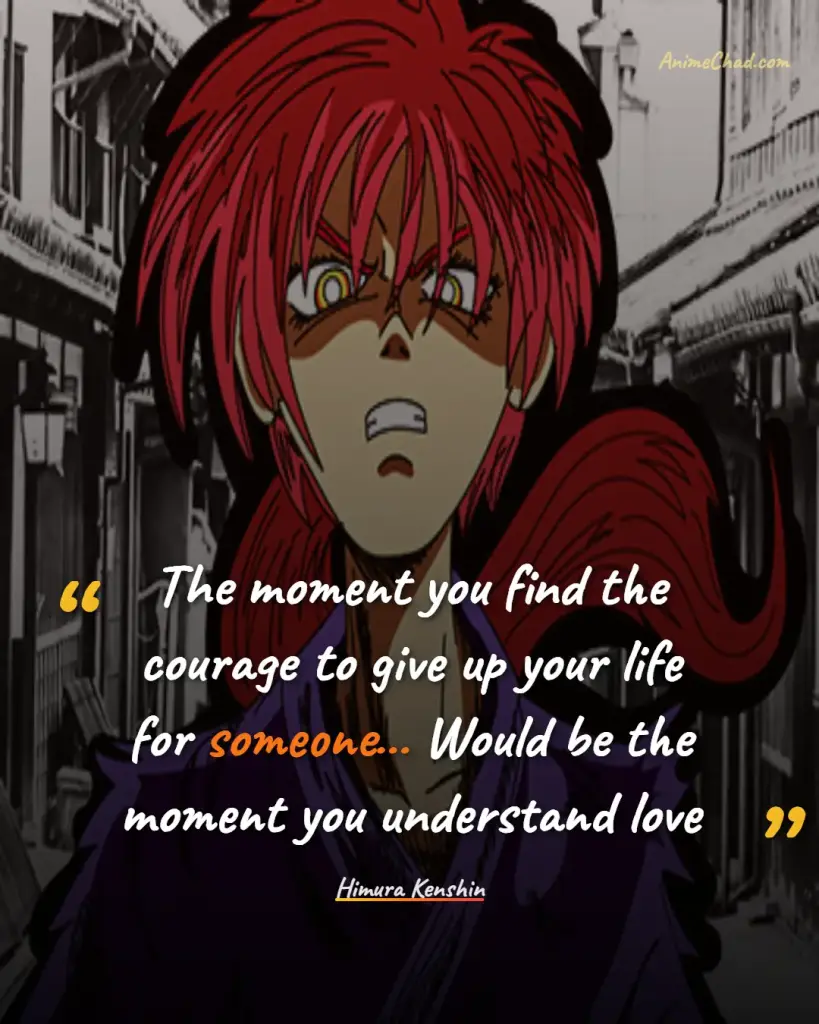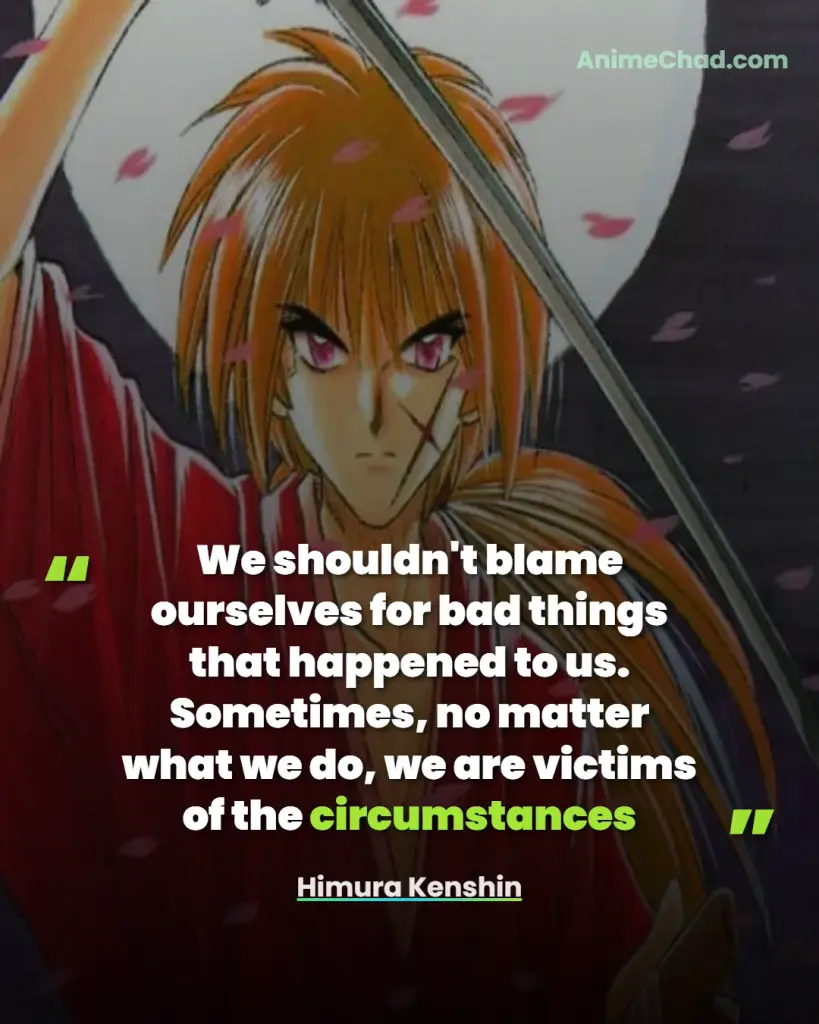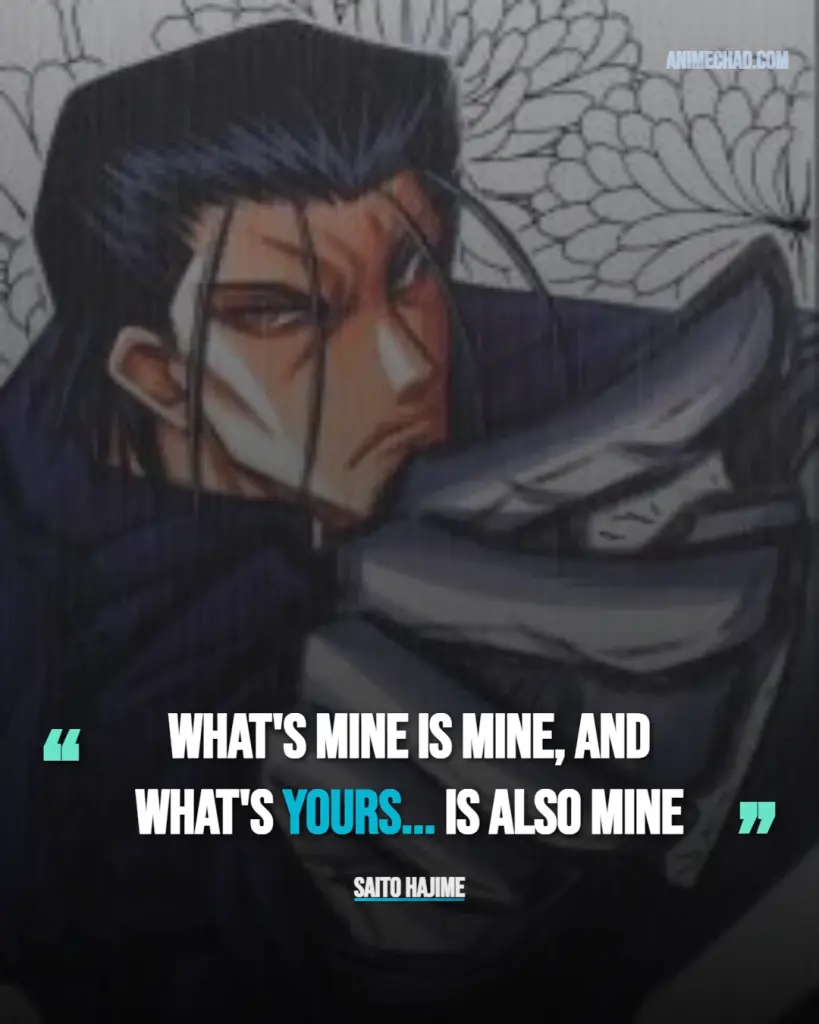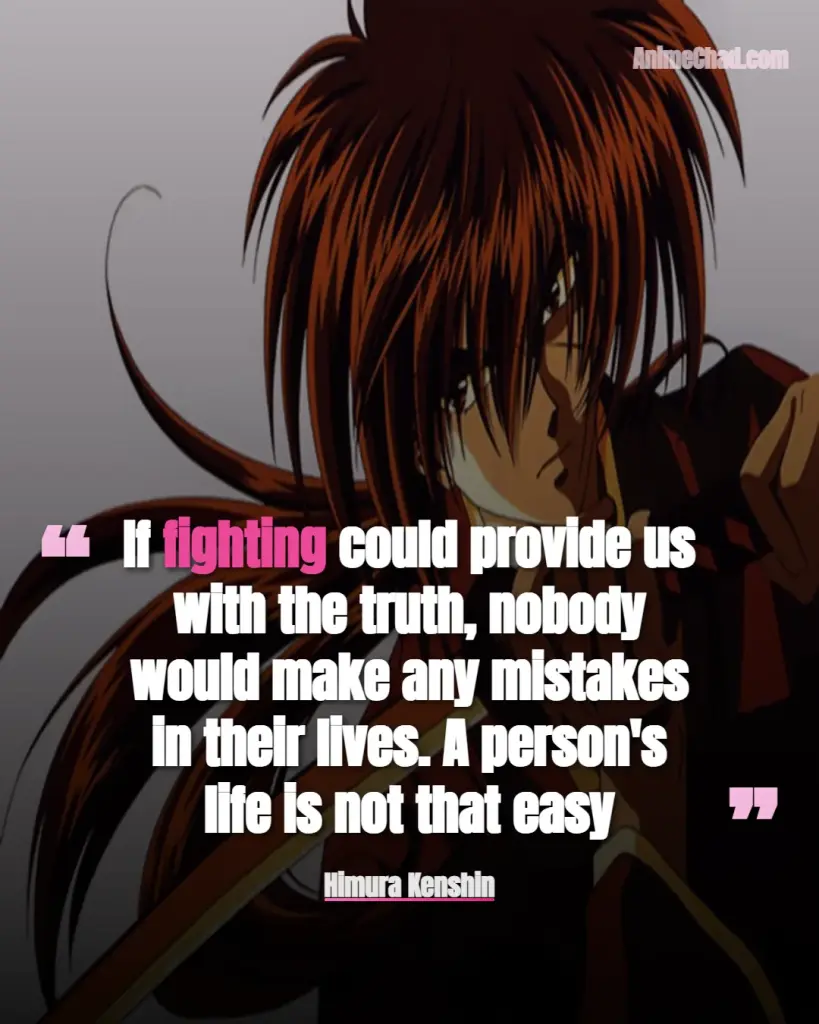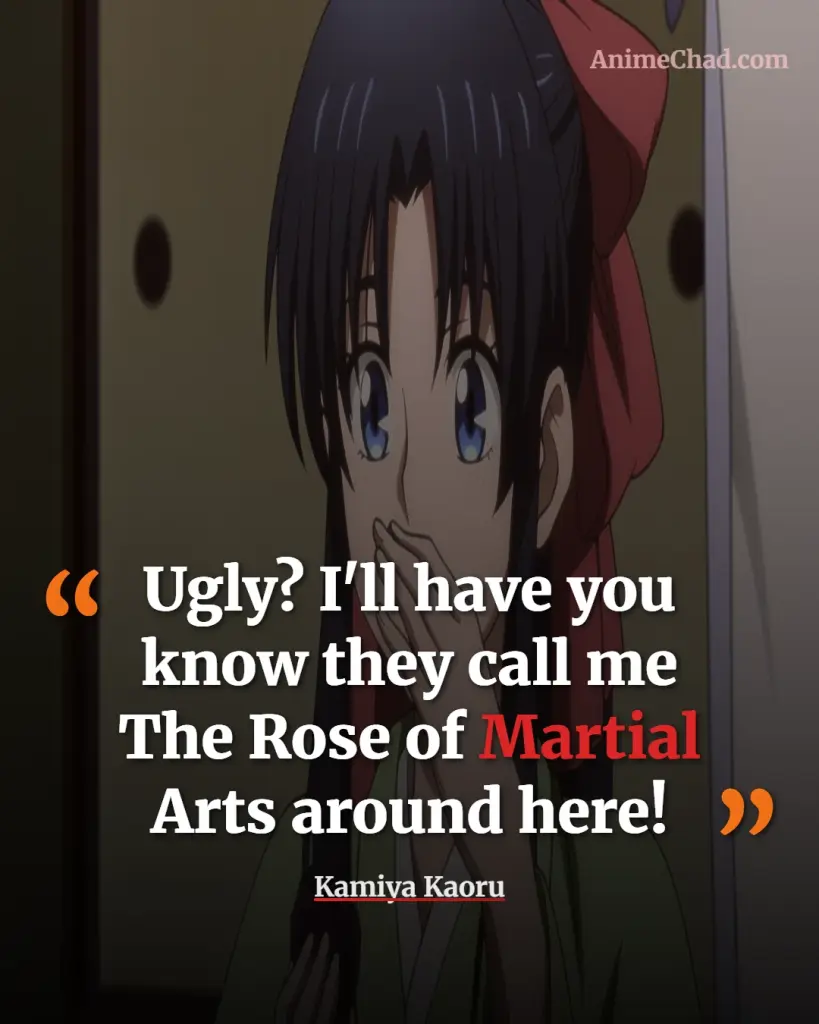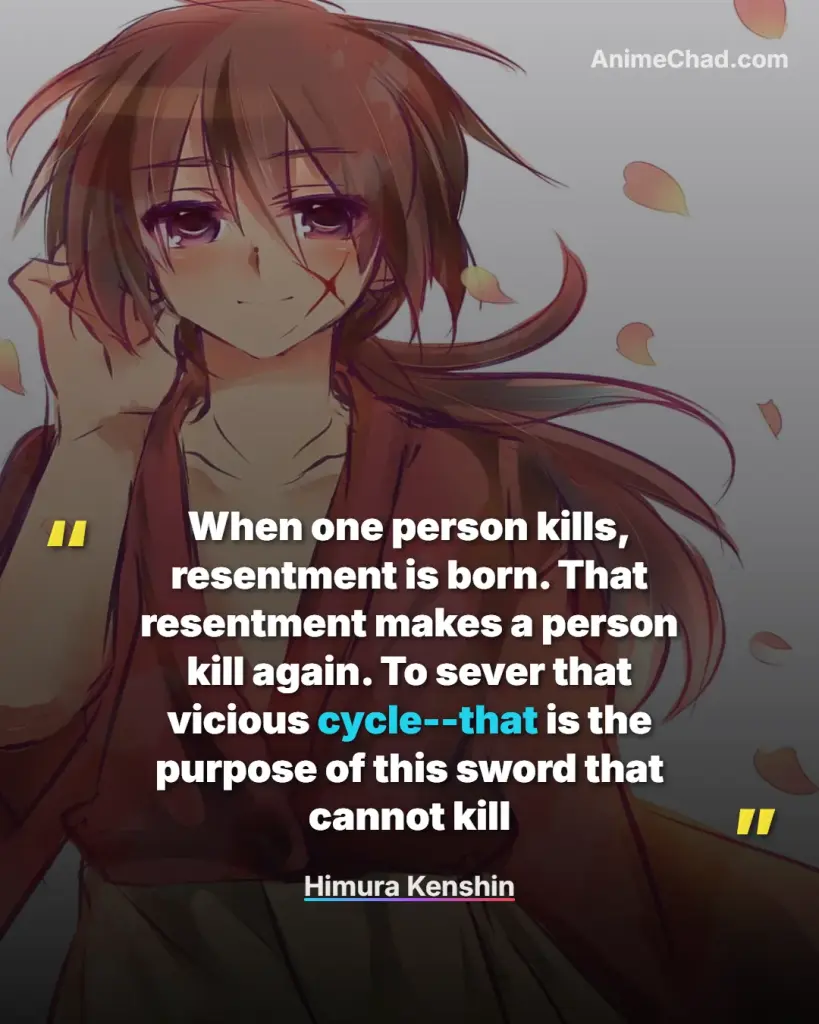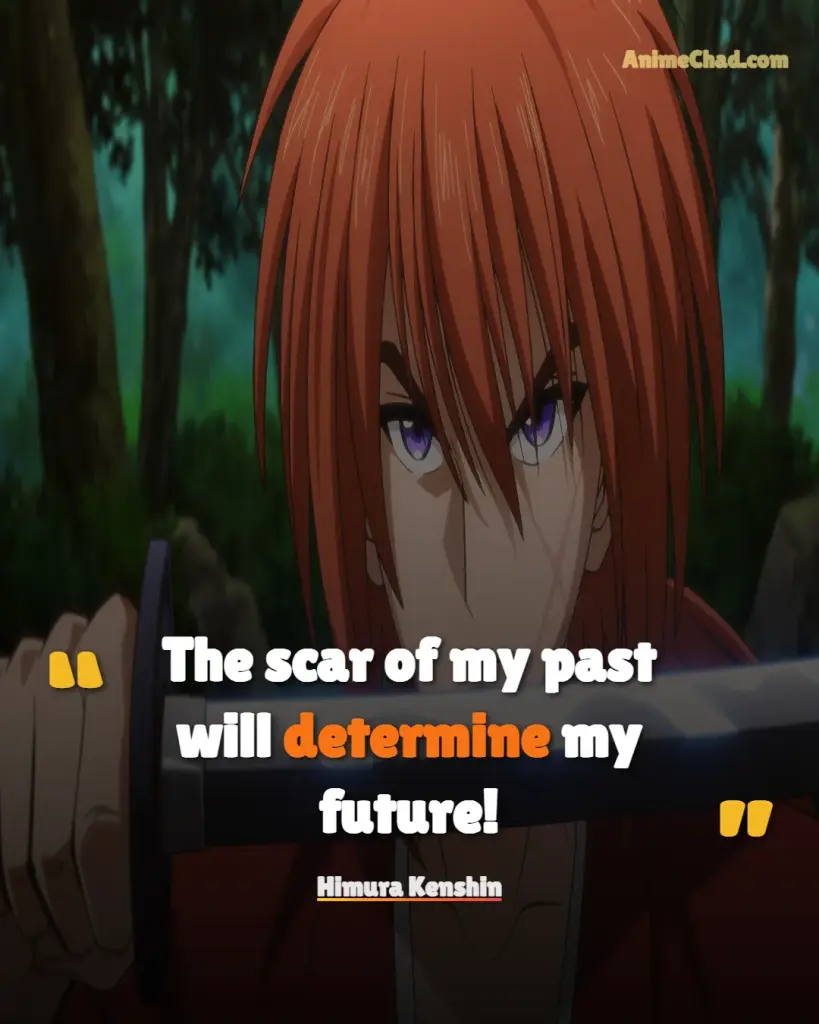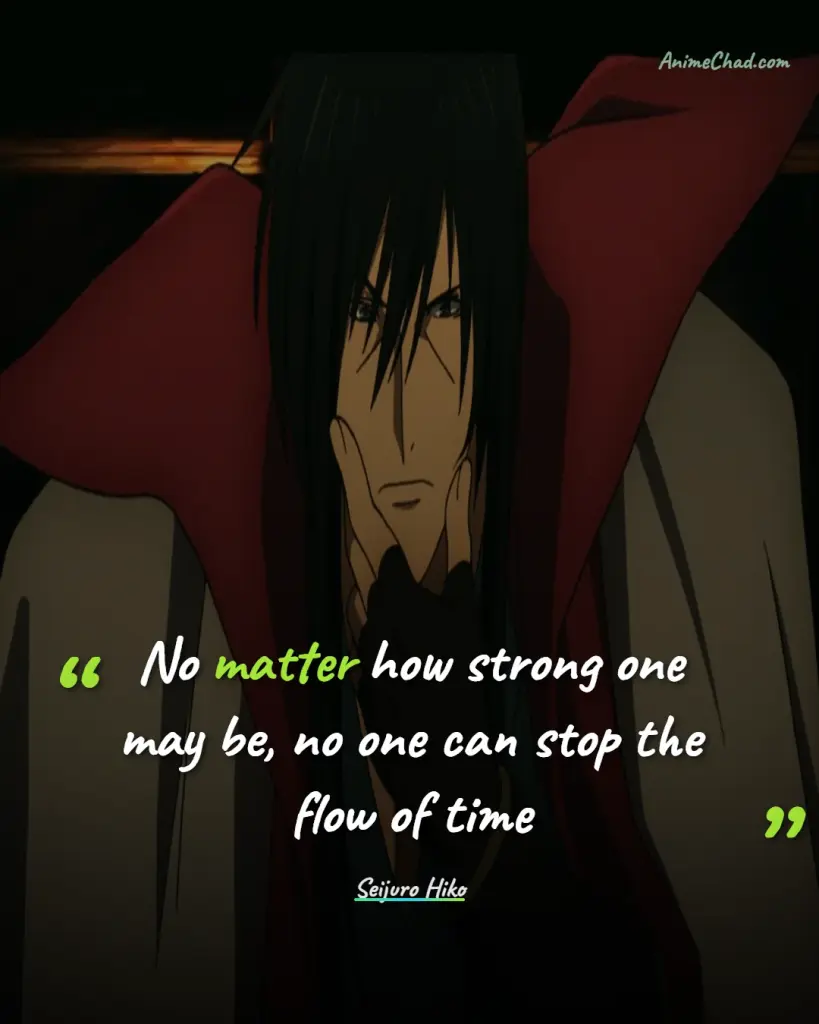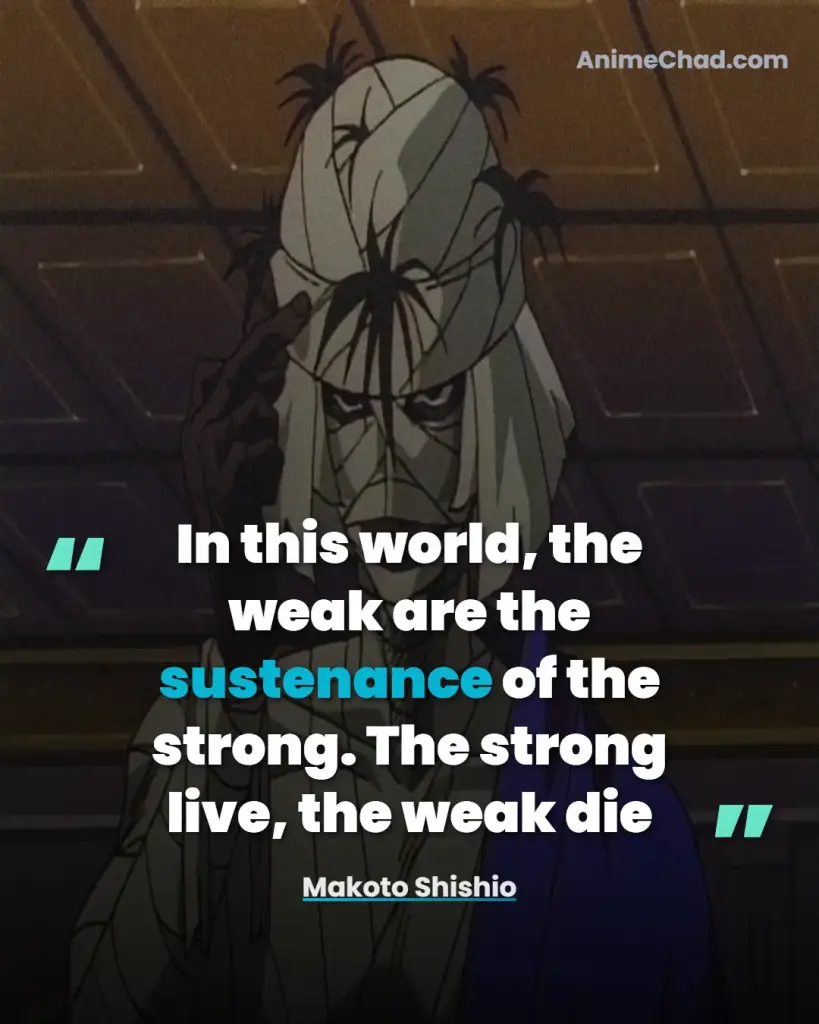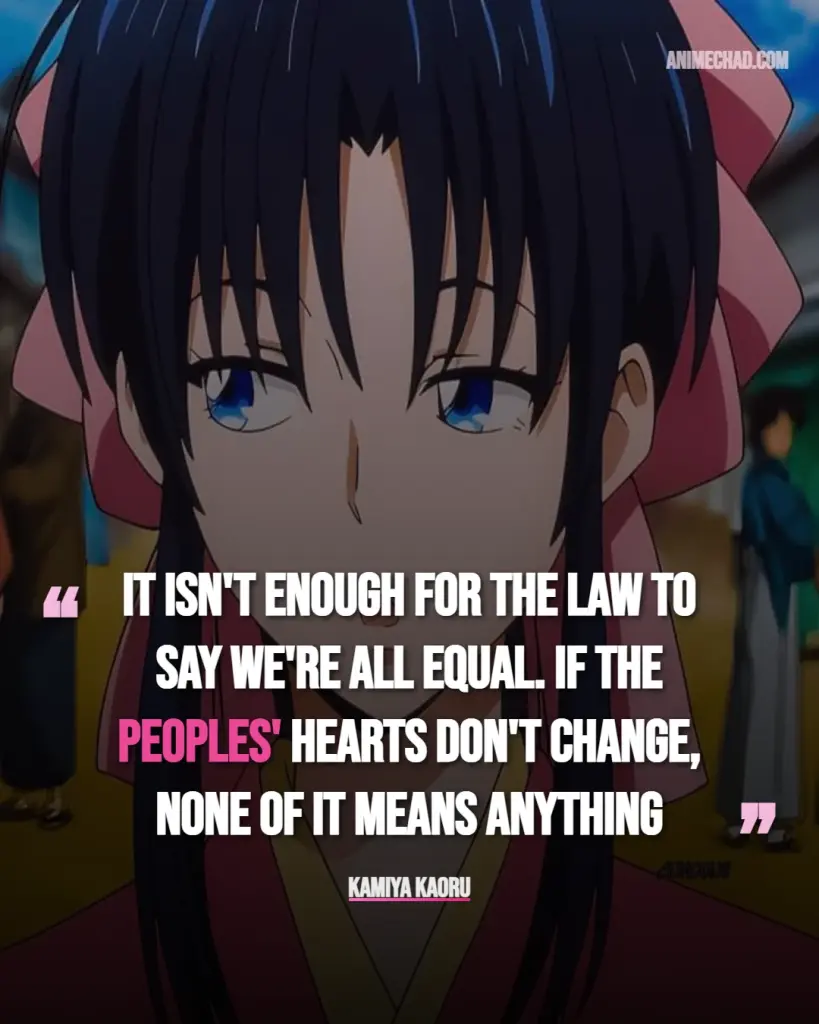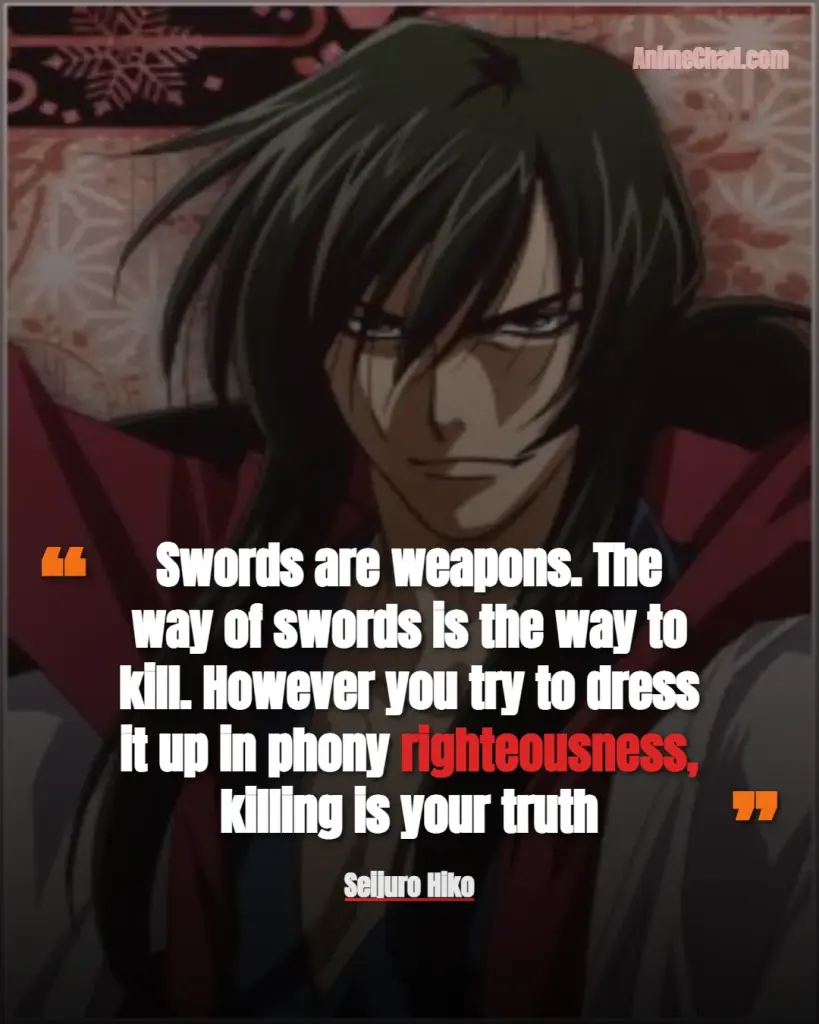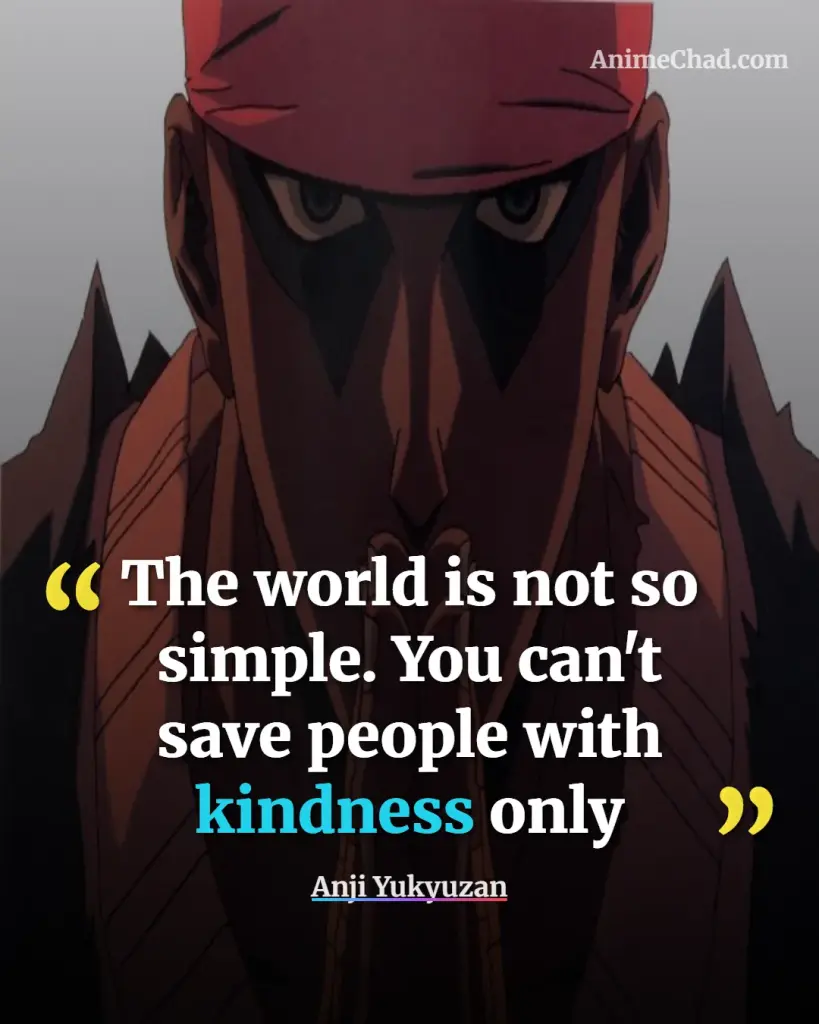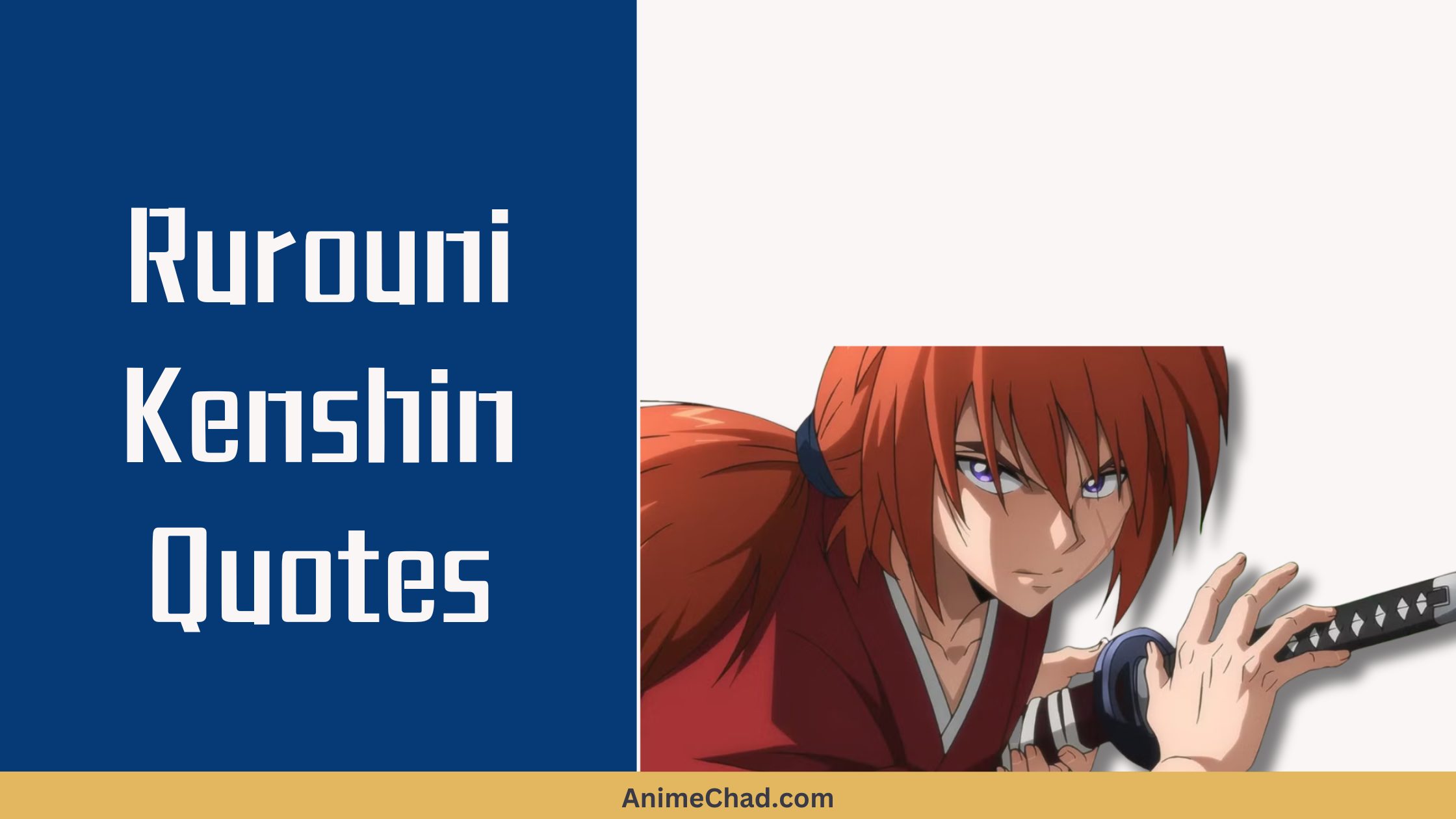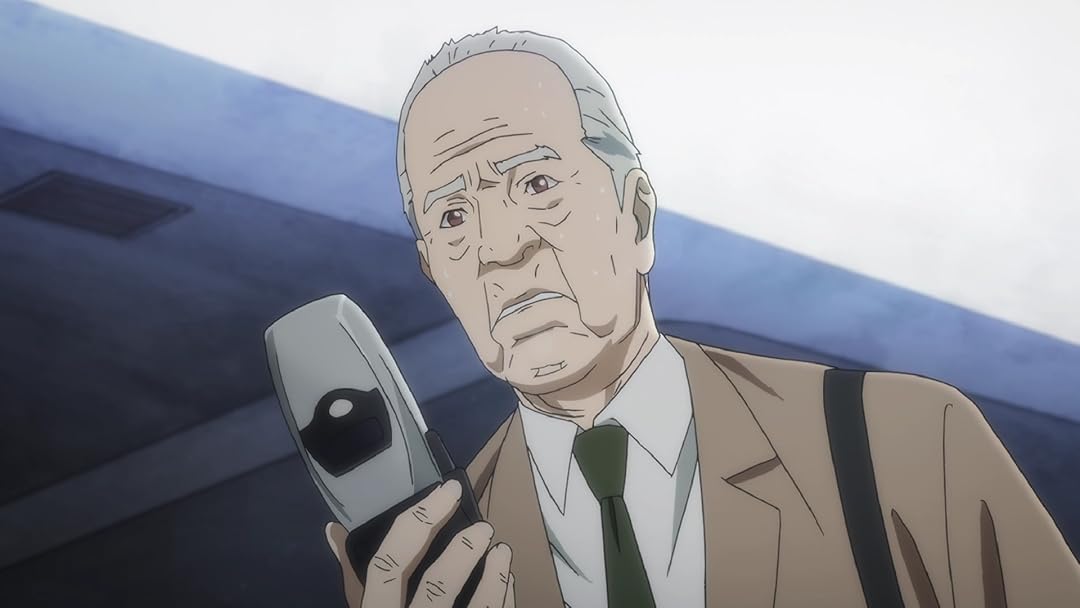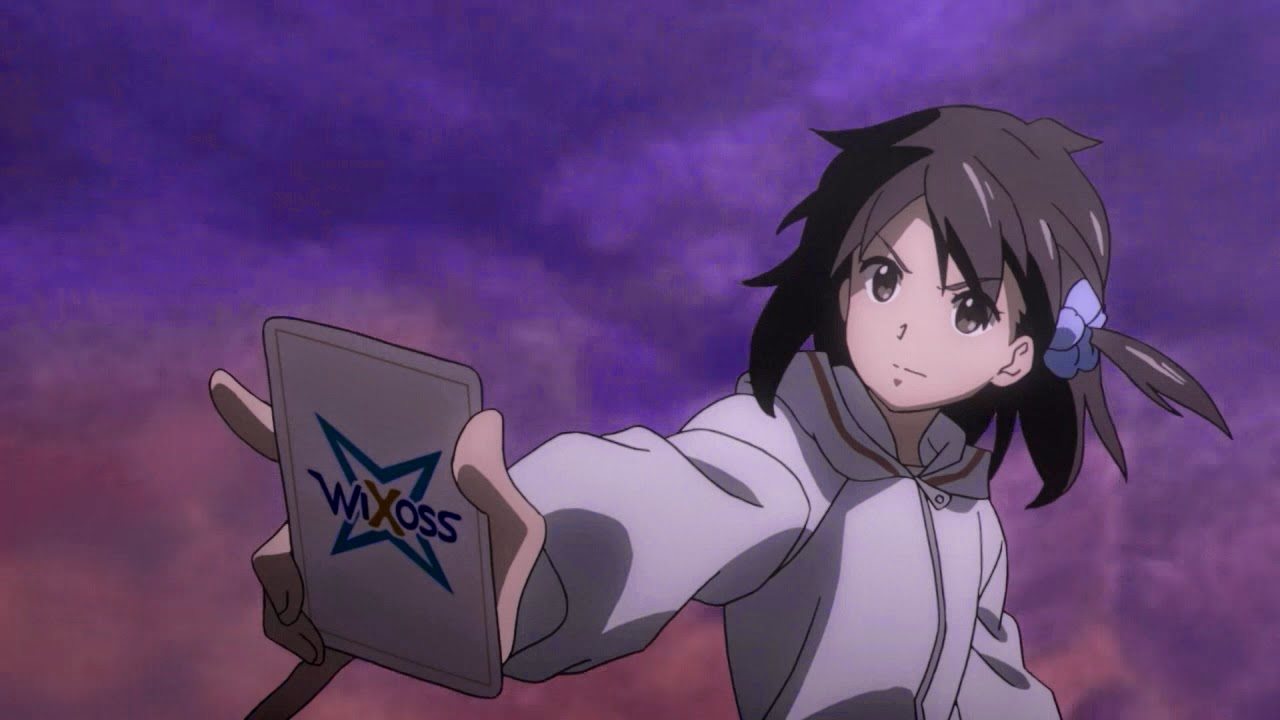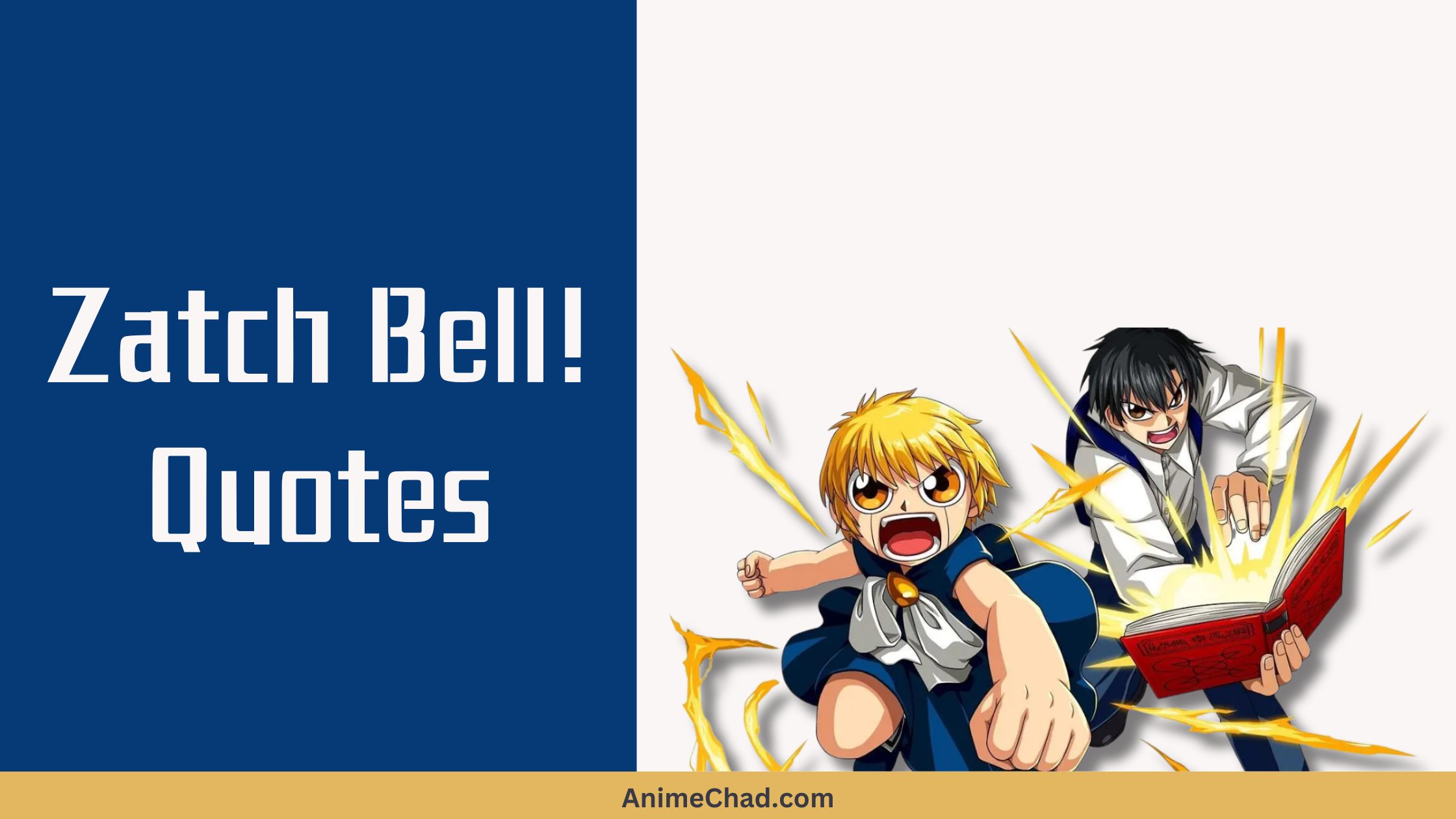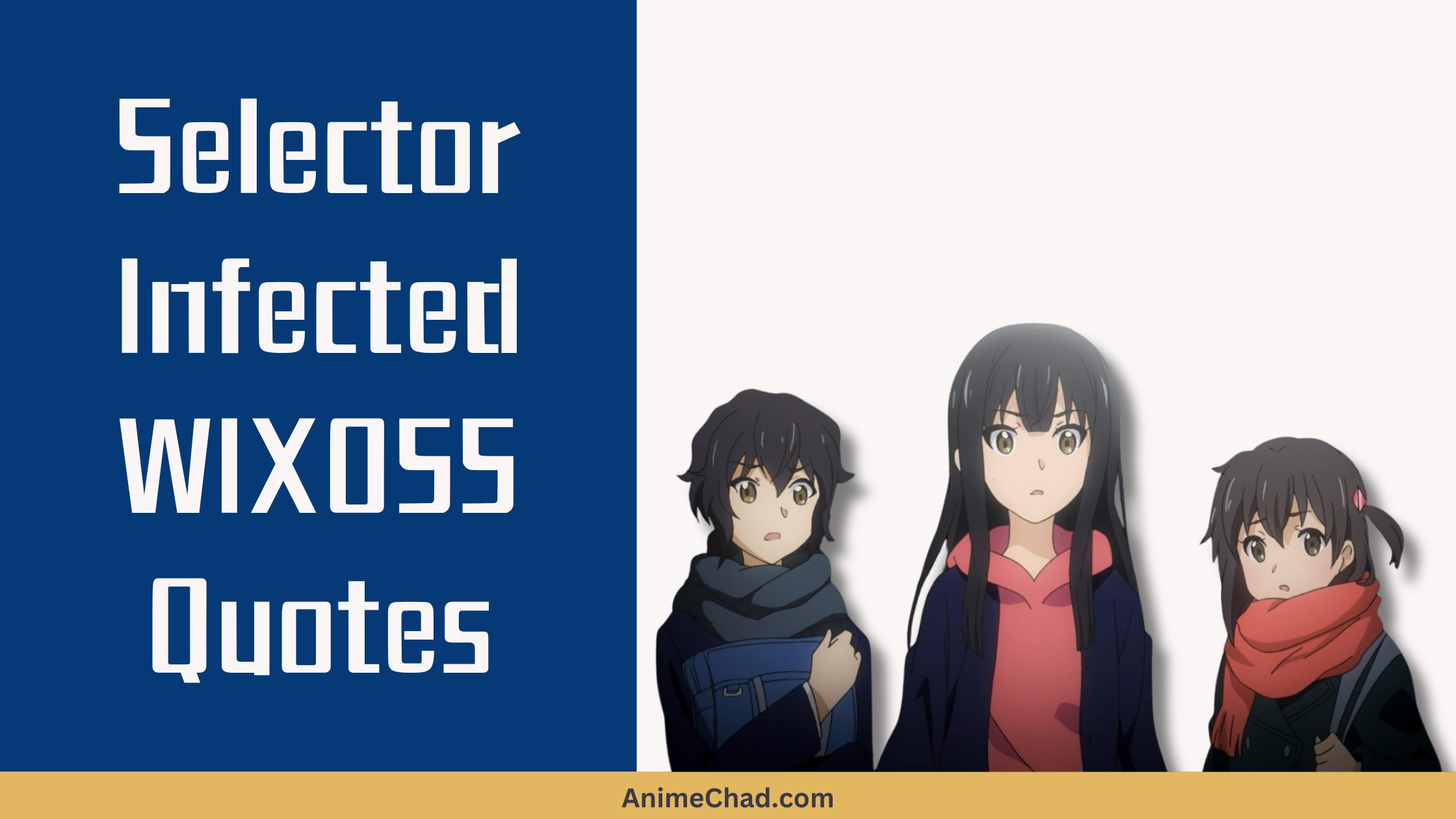Rurouni Kenshin chronicles the journey of Himura Kenshin, a former assassin known as Hitokiri Battousai, who wanders Meiji-era Japan wielding a reverse-blade sword to atone for his past. The series explores profound themes of redemption, the futility of endless violence, and the quest for a peaceful society amid revolutionary change.
This curated collection of 25 quotes captures pivotal moments of character evolution, blending intense battles with reflective peace to underscore the emotional toll of atonement.
A sword is a weapon. The art of swordsmanship is learning how to kill. That is the truth. What Miss Kaoru says is sweet and innocent talk that only those whose hands have never been stained with the blood of men can believe. But, to tell you the truth, I much prefer Miss Kaoru’s sweet and innocent talk over the truth, indeed I do!
(Episode 1: The Handsome Swordsman of Legend)
Himura Kenshin
Reveals Kenshin’s tormented soul, torn between killer instincts and idealistic non-violence, igniting his path to redemption in a post-war world.
Are you that bothered by your lack of power, young one?
(Episode 2: Kid Samurai)
Himura Kenshin
Encourages Yahiko’s growth, emphasizing inner strength over brute force, fostering mentorship bonds that heal Kenshin’s isolation.
You can die anytime, but living takes true courage
(Episode 5: The Reverse-Blade Sword vs. the Zanbatou)
Himura Kenshin
In a brutal clash, underscores survival’s valor over death, highlighting Kenshin’s shift from self-destructive guilt to protective resolve.
The strong exist, not to feed off of the weak, but to protect them!
(Episode 6: The Appearance of Kurogasa)
Himura Kenshin
During a deadly confrontation, affirms Kenshin’s vow to shield the vulnerable, symbolizing his evolution from destroyer to guardian.
Whatever you lose, you’ll find it again, but what you throw away you’ll never get it back
(Episode 7: Deathmatch Under the Moon)
Himura Kenshin
Warns against discarding bonds in a tense hostage crisis, reflecting Kenshin’s regret over lost humanity and theme of irreplaceable connections.
Everyone has a past they wish to erase
(Episode 8: A New Battle!)
Kamiya Kaoru
In a moment of empathy, connects with Megumi’s trauma, promoting forgiveness and communal healing beyond personal atonement.
When I was at the brink of life and death, I used all my will to survive… I will never lose the will to live
(Episode 27: Farewell, the Strongest Men)
Himura Kenshin
Post-battle epiphany against Aoshi evokes raw survival instinct, marking Kenshin’s deepened commitment to life despite unforgivable sins.
Oh well, I guess all those who are in love do crazy things
(Episode 28: The Day Closer to the Dream)
Sagara Sanosuke
Lighthearted reflection amid budding romance highlights vulnerability in love, contrasting series’ violence with tender human folly.
It is foolish to listen to one who will not listen to you. Do as you wish
(Episode 29: A New Battle Begins)
Seijuro Hiko
Mentor’s stoic advice during training stresses autonomy, guiding Kenshin’s independence while exposing master-disciple emotional distance.
A man that can’t hold on to his beliefs can only be pathetic, dead or alive
(Episode 30: The Hell-hound Hajime Saito)
Saito Hajime
In a fierce rivalry standoff, reinforces unyielding justice, challenging Kenshin’s ideals and echoing the era’s ideological clashes.
The dead don’t desire revenge, but the happiness of the living
(Episode 31: The Two Swordsmen of Sekiho)
Himura Kenshin
Consoles a grieving child in a peaceful interlude, embodying redemption by prioritizing living joy over vengeful cycles.
New eras don’t come about because of swords, they’re created by the people who wield them
(Episode 32: A New Battle!)
Himura Kenshin
Amid political intrigue, promotes societal change through action, illustrating Kenshin’s growth toward hopeful, non-violent reform.
Helping other people is the best way to make up for your mistakes
(Episode 33: Revive, Reverse-Blade Sword!)
Himura Kenshin
In a forge-side moment of reflection, captures atonement’s essence, transforming Kenshin’s guilt into purposeful guardianship.
The moment you find the courage to give up your life for someone… Would be the moment you understand love
(Episode 34: Destination, Kyoto)
Himura Kenshin
Evokes sacrificial depth during departure, blending romantic tenderness with Kenshin’s battle-hardened emotional barriers.
We shouldn’t blame ourselves for bad things that happened to us. Sometimes, no matter what we do, we are victims of the circumstances
(Episode 35: A New Battle Begins)
Himura Kenshin
Offers solace in a quiet talk, highlighting resilience against fate, central to Kenshin’s arc of forgiving his revolutionary past.
What’s mine is mine, and what’s yours… is also mine
(Episode 36: The Hell-hound Hajime Saito)
Saito Hajime
Taunts in a high-stakes duel, revealing ruthless pragmatism that mirrors Kenshin’s former self, intensifying rivalry’s philosophical weight.
If fighting could provide us with the truth, nobody would make any mistakes in their lives. A person’s life is not that easy
(Episode 37: The Two Swordsmen of Sekiho)
Himura Kenshin
Philosophizes during a skirmish, critiquing violence’s limits, underscoring themes of personal truth-seeking beyond combat.
Ugly? I’ll have you know they call me The Rose of Martial Arts around here!
(Episode 38: Revive, Reverse-Blade Sword!)
Kamiya Kaoru
Humorous self-defense in daily life lightens tension, showcasing Kaoru’s spirited growth and supportive role in Kenshin’s peace.
When one person kills, resentment is born. That resentment makes a person kill again. To sever that vicious cycle–that is the purpose of this sword that cannot kill
(Episode 39: Destination, Kyoto)
Himura Kenshin
Declares vow in a pivotal confrontation, emotionally charging his reverse-blade’s symbolism against endless revenge.
The scar of my past will determine my future!
(Episode 40: A New Battle Begins)
Himura Kenshin
Affirms in a introspective battle, linking cross-shaped scar to lifelong atonement, driving character development toward unyielding protection.
No matter how strong one may be, no one can stop the flow of time
(Episode 41: The Hell-hound Hajime Saito)
Seijuro Hiko
Mentors during succession training, imparting humility on power’s transience, deepening Kenshin’s acceptance of change.
In this world, the weak are the sustenance of the strong. The strong live, the weak die
(Episode 42: The Two Swordsmen of Sekiho)
Makoto Shishio
Antagonistic creed in a fiery clash, contrasts Kenshin’s ethics, heightening the series’ debate on strength’s moral use.
It isn’t enough for the law to say we’re all equal. If the peoples’ hearts don’t change, none of it means anything
(Episode 43: Revive, Reverse-Blade Sword!)
Kamiya Kaoru
Advocates inner transformation in a serene discussion, reinforcing themes of genuine equality beyond Meiji reforms.
Swords are weapons. The way of swords is the way to kill. However you try to dress it up in phony righteousness, killing is your truth
(Episode 44: Destination, Kyoto)
Seijuro Hiko
Harsh lesson in a mentor confrontation, forces Kenshin to confront swordsmanship’s brutality, spurring ultimate technique mastery.
The world is not so simple. You can’t save people with kindness only
(Episode 45: A New Battle Begins)
Anji Yukyuzan
Challenges in a brutal rematch, exposes naivety’s limits, aiding Kenshin’s nuanced view of compassion amid savagery.
